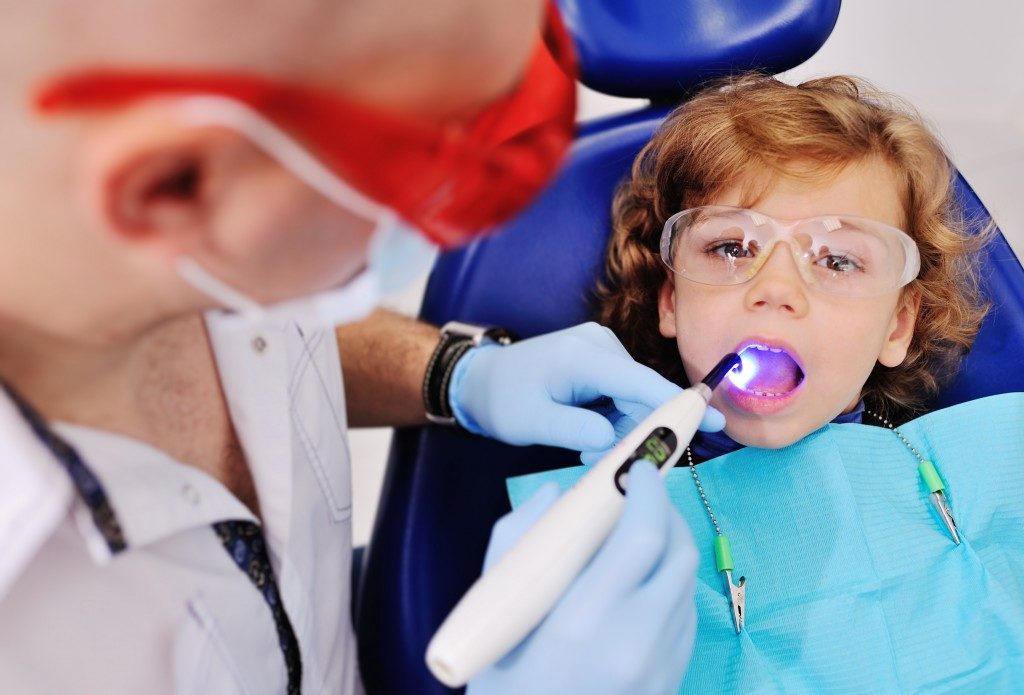Athletes are bound to incur injuries, whether on or off the court. The most common of these injuries are teeth-related; some more severe than others. Severe injuries, like bleeding gums, broken teeth, acute infections, and swelling of the gums all require emergency services in dental care that deals with sports or exercise.
What is Sports Dentistry?
Sports dentistry focuses on the needs of athletes, and it’s mainly involved in the prevention and management of athletics-related orofacial injuries and oral diseases. The sports dentist accompanying the team helps the athletes manage their oral injuries. These dentists offer diagnosis, prevention, and treatment.
Not a lot of athletes know the serious repercussions of traumatic injuries or of the potential for incurring severe head and orofacial injuries while playing. The field of dental medicine branched out specifically to raise oral health awareness for athletes and the impact of their athletic activities.
Common Dental Injuries in Sports
About 13 percent to 39 percent of dental injuries are due to sports. Approximately 80 percent of these affect the front teeth. It’s also worryingly common to chip two or more of your teeth if you’re an active individual. Athletes naturally can’t stop their career because of such hazards, and you can’t simply give up on your active lifestyle. But you can begin to wear helmets and mouth guards for protection.
Mouth guards are essential if you play:
- Basketball
- Boxing
- Track and field
- Hockey
- Football
- Gymnastics
- Martial arts
- Soccer
- Softball
- Volleyball
- Wrestling
- Any extreme sport

Dental injuries are common in contact sports like basketball, football, “ball and stick games,” boxing, wrestling, martial arts, and skateboarding than others. If you engage in any of these, you may expect these common injuries: cracked teeth, tooth intrusion, tooth extrusion, avulsion or knocked out teeth, and fractured roots.
- Cracked teeth- A sudden blow to the face may crack an athlete’s teeth. The damage would depend on the force of the blow. Baby teeth crack easier than permanent teeth do. Wearing mouth guards reduce the risk of serious cracks on the teeth.
- Tooth intrusion- Tooth intrusion happens when the teeth sink into the jawbone or its socket. It’s a serious type of displacement injury that may result in the death of the affected nerves if not treated quickly.
- Tooth extrusion- Unlike intrusion, tooth extrusion happens when the teeth partially erupt from its socket to the palate. The dentist gently repositions the teeth to treat this injury. Unlike tooth intrusion, extrusion injuries are less life-threatening.
- Avulsion or knocked out teeth- The most common tooth injury aside from cracked teeth is when it’s completely knocked out. Saving it is possible when the treatment is within an hour of the accident.
- Fractured roots- Dental injuries aren’t limited to the teeth. Root injuries happen when the cracks on the teeth reach the gums. The severity of this injury depends on the location of the fracture on the root. To prevent infection in the pulp, the athlete should receive root canal therapy promptly.
Injuries are part of any contact sport, whether you’re playing on the field or the court. Although protective gear like a mouth guard and a helmet do help, it’s best to have access to immediate dental care that focuses on your specific oral health concern.


